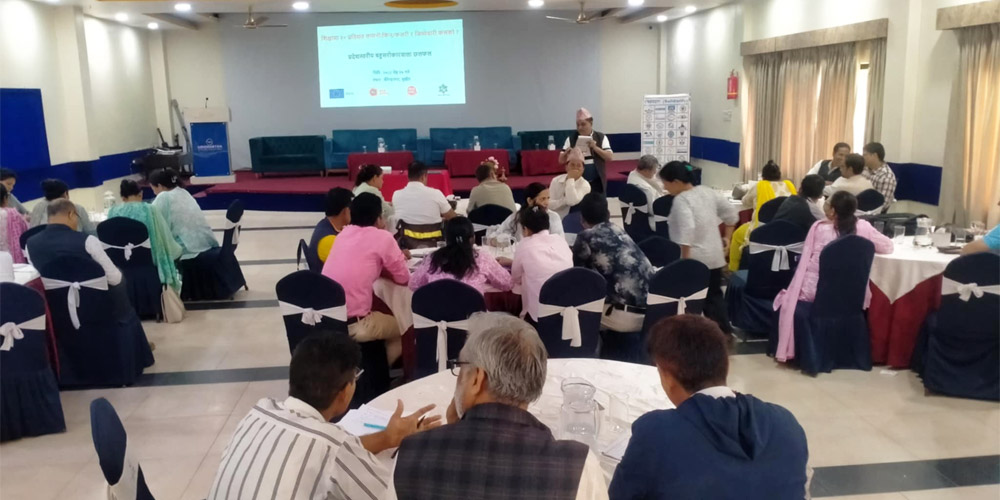
Once, up to 17 percent of the total national budget was allocated to the education sector. Today, this figure has steadily declined and currently hovers between 10% and 11%.
As state investment increasingly focuses on infrastructure development, the education sector remains underfunded and neglected. Concerned stakeholders have emphasized that education is the foundation of national development, and investment in this area must increase.
At a recent program held in Birendranagar, Surkhet, participants suggested that the provincial government allocate at least 20% of its budget to education.
Multistakeholder Dialogue on Education Investment
The event focused on the theme: Why and how should 20 percent of the budget be invested in education, and whose responsibility is it? Participants stressed the need to transform education into a system based on:
-
Information technology
-
Digital tools
-
Learner-centered methodologies
Key Points Raised During the Discussion
Chandra Lamichhane emphasized that free and quality education requires increased investment. She recommended prioritizing education in the upcoming fiscal year.
Tekraj Acharya, Karnali Coordinator of the Child Rights Campaign, noted that while child-focused programs are included in policies, they must also be reflected in budget allocations. He questioned when the government would finally allocate a dignified and relevant education budget.
Rajendra Paudyal, Chair of the National Campaign for Education (NCE) Nepal, urged the government to mandate a minimum 20 percent investment in education. He reminded the forum that the Sustainable Development Goals (SDGs) also call for this target to be achieved by 2030.
Emphasis on Quality Over Infrastructure
Purna Bahadur Khatri, Chair of the Social Development Committee of the Provincial Assembly, pointed out that placing infrastructure over learning outcomes has deteriorated the quality of education. He urged future investments to be focused on quality education.
Kalyani Khadka, Chair of the Provincial Affairs Committee, emphasized that education is the first step in the development process. She said development is only possible when people are educated and have their budget allocations made based on need.
Voices from Political and Ministerial Leaders
Former Minister and Provincial Assembly Member Urmila Bishwakarma, also the Coordinator of the Interparty Women's Parliamentary Network, stated that education must be a top priority in the upcoming budget. She insisted that programs announced in policy documents should be fully implemented in the budget.
Karnali Province Minister for Social Development, Ghanshyam Bhandari, committed to increasing the education budget in the next fiscal year. He added that compared to the last five years, this year’s education budget has already seen an increase.
Current and Past Education Budget Allocations
Current Fiscal Year (2080/81)
-
Total provincial budget: NPR 31.41 billion
-
Education sector allocation: 5.8%
-
Social Development Ministry’s budget for education: 31.9%
This is the highest education allocation in five years.
Previous Fiscal Year Allocations
FY 2076/77
-
Education share of total provincial budget: 2.5%
-
Education share of ministry budget: 16.9%
FY 2077/78
-
Provincial budget share: 4.3%
-
Ministry budget share: 25.3%
FY 2078/79
-
Provincial budget share: 2.5%
-
Ministry budget share: 14.3%
FY 2079/80
-
Provincial budget share: 3.9%
-
Ministry budget share: 20.6%
FY 2080/81
-
Provincial budget share: 3.8%
-
Ministry budget share: 21.2%
The dialogue concluded with a unified call from provincial leaders, education advocates, and civil society members: Education must be treated as a priority sector, not an afterthought.
Surkhet Karnali Pradesh

